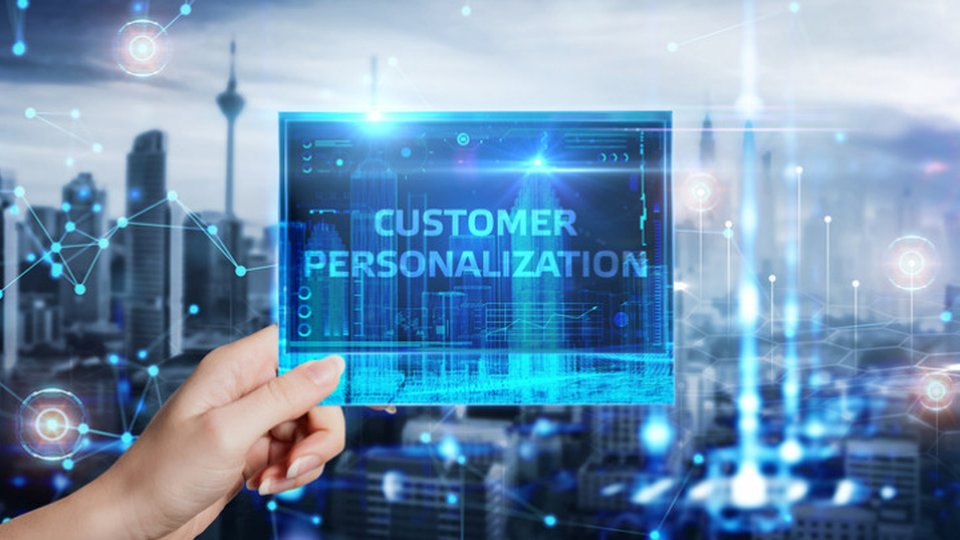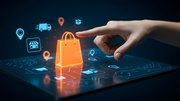Technology
5 benefits of personalized marketing retailers aren’t thinking about
Fayez Mohamood, CEO and co-founder of Bluecore, explains why handing over at least some control of the messaging in customer communications to technology can offer customers the most personalized experiences and lead to other benefits retailers may have never considered.

October 8, 2021 by Fayez Mohamood
The retail environment today is dominated by shoppers' preferences: shoppers want brands to meet them with exactly what they want, on the digital channel they're on. And the only way to keep shoppers engaged with a brand is to deliver those individualized experiences informed by their preferences, including who they are, how they shop and the products they've engaged with.
Retailers look to personalization as a way to get customers connected with products they'll love and to create loyal, long-term customers, instead of one and done shoppers. But there's more to personalization than meets the eye.
Personalized marketing can impact retailers in ways that they may have never even considered and have major business benefits. Here are five surprising benefits of personalized marketing:
1. Customer service can be less of a complaint center, and more of a customer experience space
When customers aren't happy with a product, their initial reaction is to go directly to customer service. Maybe the product doesn't fit well, they don't like the color, or they just hate the product altogether. With personalized communications shoppers are being shown only the products that make sense for them and in their specific size. This doesn't mean that shoppers will always be happy with a product--but they're more likely to be--which means there are less unhappy customers reaching out to customer service.
For example, when fitness shoe and apparel brands NOBULL pulled in personalized product recommendations to their customer communications, based on current inventory and shopper interest, they saw a significant decrease in unhappy customer service calls.
And with less time spent handling complaints, customer service teams can spend more time building relationships with customers. Call centers can transform into more of a customer experience space -- another touchpoint for customers to engage with a brand — rather than a complaint center.
2. Brands can better forecast inventory
Brands need to look into how shoppers behave and the products they're interacting with to successfully personalize their marketing. Only then can they make accurate decisions--with the help of technology — on what shoppers will be interested in purchasing next. This data can also be used beyond marketing and, surprisingly enough, in the warehouse.
Some retailers that have made personalized marketing a priority have seen an impact to their supply chain as well. With retailers' insight into what customers are going to buy, what's recently been out of stock that customers are engaging with and what products aren't working, they can stock their warehouse more efficiently.
This is especially important in a digital-first world, with an increasing pressure on the supply chain. Retailers are still struggling with their supply chain as a result of COVID, and with the holidays coming up, they can't afford a repeat of last year: low inventory with an increased demand for products, paired with delays in deliveries. Retailers need to double down on their supply chain and ensure they're stocked with enough of the right items and have the means to offer speedy deliveries to customers.
3. Brands are 'going green' and increasing sustainability
Nearly every brand wants to integrate an aspect of sustainability into their business. For some, this may mean selling products with sustainable fabrics and for others, this could be company donations to environmental causes. And personalized marketing? That can be sustainable too.
Shoppers that buy products selected just for them are less likely to make returns. A decrease in returns means less carbon emissions from the transportation back to the warehouse and less packaging wasted. And many times, returns are discarded completely and head straight to the landfill. By matching shoppers with products they'll want — and that fit — and avoiding returns, retailers also end up being more sustainable.
4. Brands experience a margin renaissance
With a personalization strategy, brands can be much more deliberate with how they push products out. Brands can make personalized recommendations based on items shoppers already have in their cart, to boost cart size and minimize the initial fulfillment cost (one order, with many items costs less to fulfill than three orders, each with one item).
Product recommendations are not the only kind of personalization that affects margins — personalized offers and promotions can also significantly impact a retailer's bottom line. Not everyone needs an offer to shop, in fact, only 36% of shoppers say that discounts have the most impact on their purchase from a brand. And every shopper has a different value of offer that will lead them to convert.
5. Shoppers gravitate towards the brands that know them best
Consumers today want an experience curated just for them; across every touchpoint they're engaging with a brand. And with this heightened expectation of personalization, they're beginning to think differently about brands than they may have in the past.
As brands learn about customers through different touchpoints, like how they engage with products online and what they purchase in-store, they'll be able to personalize customers' experiences accordingly. When brands know what customers want — before they even do — it builds brand affinity, and in a way, the brand becomes a friend. Customers want to visit the friend that knows them best again and again, and continue to build that relationship, rather than keeping up with the friend that never seems to ask about them.
Those brands that meet shoppers with exactly what they want, whether online or in-store, will be the ones customers will gravitate to.
Historically, brands have stuck with manual processes and away from integrating AI and automating processes because they think that AI will make decisions that don't align with the brand. But technology won't overshadow the brand, it'll strengthen it. The brands that are willing to hand over at least some control of the messaging in their customer communications to technology will be the ones that can offer customers the most personalized experiences and lead to other benefits they may have never considered.
Fayez Mohamood is CEO and co-founder of Bluecore
About Fayez Mohamood
Bluecore’s AI-driven technology allows retailers to launch completely personalized multi-channel campaigns at scale by curating products, content, and offers, specific to each shopper’s individual preferences. The company drives significant increases in revenue for 400+ retailers and brands, including Express, Tommy Hilfiger, The North Face, Teleflora, and Bass Pro Shops, by connecting first-party shopper data, onsite behavioral data and most uniquely, retailers’ live product catalogues, and automating decisions around the recommendations that will convert individual shoppers.
 ChatGPT
ChatGPT Grok
Grok Perplexity
Perplexity Claude
Claude




